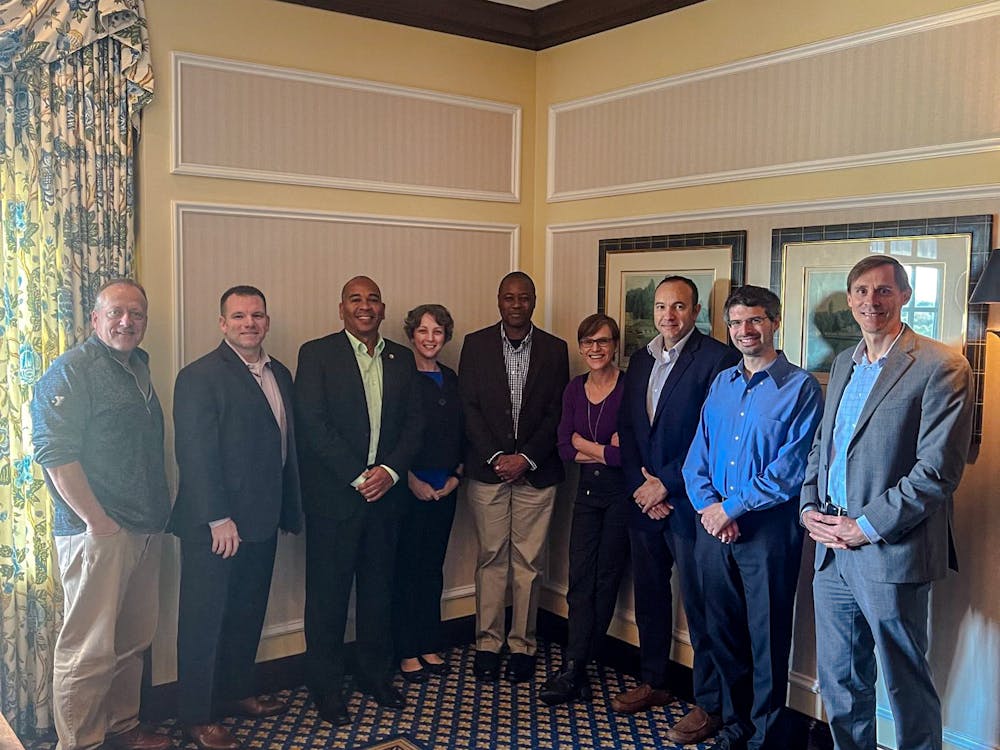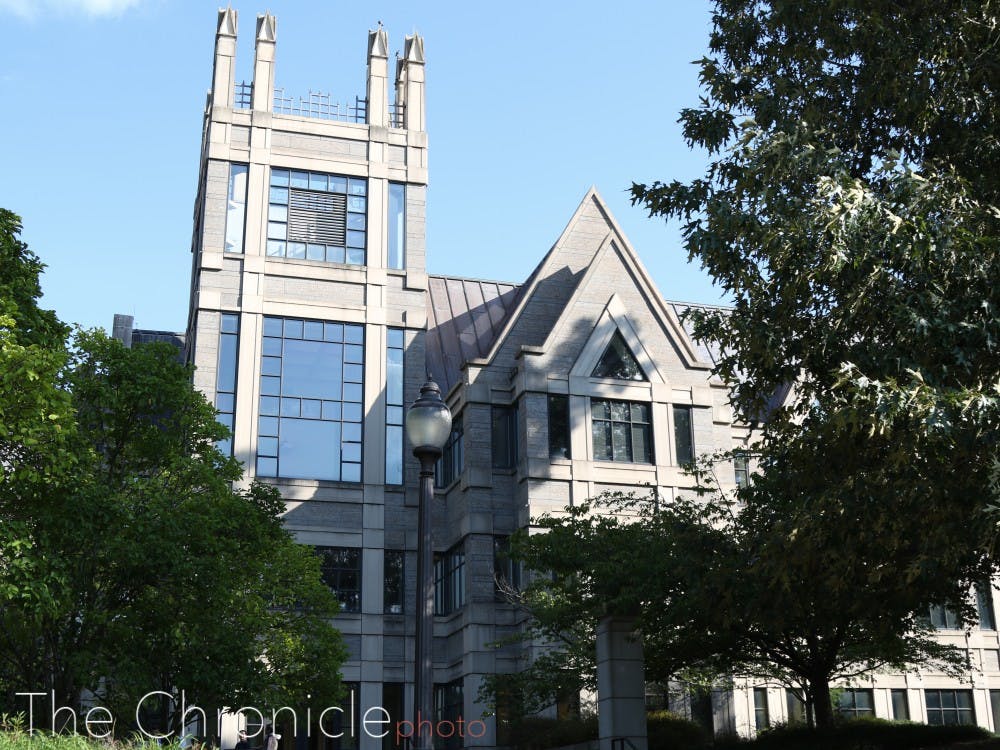The Counterterrorism and Public Policy fellowship program hosts seven mid-career national security officials, each with a diverse set of skills and career experiences, ranging from military service to the FBI.
Tim Nichols, visiting professor of the practice at the Sanford School of Public Policy and the CTPP Fellowship Program’s director, described the selection process as highly rigorous. Each year, Nichols works with participating government agencies and departments to select fellows from a shortlist of candidates compiled through an internal review process.
Though each of the fellows has prior experience with counterterrorism, foreign service or intelligence efforts, their experiences prior to coming to Durham vary.
The fellows’ paths to Duke
After 15 years in foreign service, Ben Hess, a CTPP fellow and career foreign service officer (FSO), decided that it was time to shift from his day-to-day work to “think[ing] more strategically about issues.” As an FSO, Hess’ work took him across the world, and although the focus of his work has shifted in recent years, his initial work focused on the war on terror.
Kenrick Forrester, a New York native and first-generation college student, served in Afghanistan and Iraq over the course of 27 years in the military.
“I’m always seeking a challenge and the Army has never failed to give me a challenge … I think a lot of pride in the service that I came from is because I enlisted into the army as a private and made my way here,” Forrester said.
Eric Jnah, a colonel who has served in the U.S. Army for over 20 years, began his career in the aftermath of the 9/11 attacks, when he deployed to Afghanistan. Since then, he has been deployed overseas nine times and has worked on military counterterrorism operations in several countries.
Jnah applied to the CTPP fellowship to work with the “second-to-none” officers attending Duke.
Brian Riordan, a CTPP fellow and intelligence analyst with the Federal Bureau of Investigation’s counterterrorism division, chose to apply for the fellowship to interact with other national security practitioners.

Riordan, who was in sixth grade during the 9/11 attacks, realized that there was a “bigger world out there than [he] originally thought” early on. He voraciously read books on other countries and cultures at a young age and joined the FBI’s counterterrorism division at its Washington headquarters after five years as a staff operations specialist at the FBI’s Newark, N.J., field office.
“I wanted to make a difference. I wanted to give my contribution to help make the country safer, in what ways I could, and I feel that working for the FBI and in the capacity that I do, I am able to do that,” Riordan explained.
A unique community role
Since its inception 13 years ago, Nichols has led the fellowship with David Schanzer, professor of the practice at the Sanford School of Public Policy. The program is designed to train mid-level to senior security professionals about American national security and policymaking, so they can bring those lessons back to their respective organizations.
Nichols contended that the diversity of institutions the fellows come from was an asset for both the fellowship itself and the University. He believes the fellows learn just as much from their professors as they do from each other.
“It's one thing to say that you are familiar with the FBI. It's another thing to say that a military guy knows and sends Christmas cards to someone else in the FBI because they know each other so well,” Nichols said.
The fellows spend the academic year conducting research on a national security topic, presenting their work at the end of the year. Research topics vary from atrocity prevention to psychological operations.
“I'm hoping to be able to work on this research to contribute to something that I can take back with me to the [FBI], put[ting] a lot of my findings into a written product that could perhaps be utilized by upper management or staff, not even in the not just the FBI but other parts of the government,” Riordan said.
Nichols emphasized that the program empowers students interested in national security to get in touch with anyone from a career diplomat to a federal law enforcement agent.
The fellows interact with students in programs such as American Grand Strategy, joining students on staff rides and at social events.
Several fellows mentioned the opportunity to provide a practitioner’s perspective and interact with students in at least three classes each semester as one of their favorite parts of the program.
Jnah also noted that, like many Americans, students at Duke may not have personal connections to the military, resulting in their limited understanding of it.
Being able to serve as an “ambassador” through the fellowship has helped Jnah and the other fellows educate students about their roles and the people who serve in the national security apparatus. Jnah enthused about how he could “give [students the] perspective of not only the military or what military experience or recruiting national security’s like” but also show that he’s “just a normal person.”
What comes next
After completing their fellowship, the fellows return to their respective institutions. Still, this may not be the end of their connections with those they met at Duke.
“It is not lost on me that some of the folks that I'm sitting in class with [are people] I am going to see again, in some professional manner down the road … It's really good from our perspective to see outside of ourselves and how we think,” Forrester commented.
Nichols, for his part, is looking to take the fellowship to new levels by publishing fellows’ research and recruiting fellows from new sectors, such as those in state and local government, the Department of Homeland Security, or the intelligence community.
To compensate for the high-stress environment the fellows work in before arriving at Duke, Nichols wants to “double down on fun” by giving fellows ample time to spend with their families and attend Duke events such as tailgates.
For several fellows, the fellowship is an opportunity to continue their passion for service.
“You feel fulfilled from a sense that you're serving something greater than yourself. You're serving your nation, you're serving the people that you work with day to day,” Jnah said.
Get The Chronicle straight to your inbox
Signup for our weekly newsletter. Cancel at any time.
Samanyu Gangappa is a Trinity sophomore and local/national news editor for the news department.

